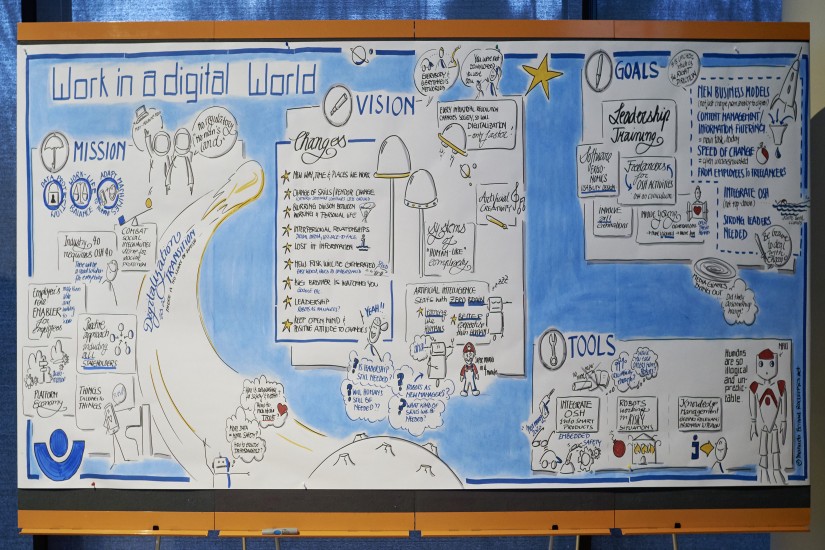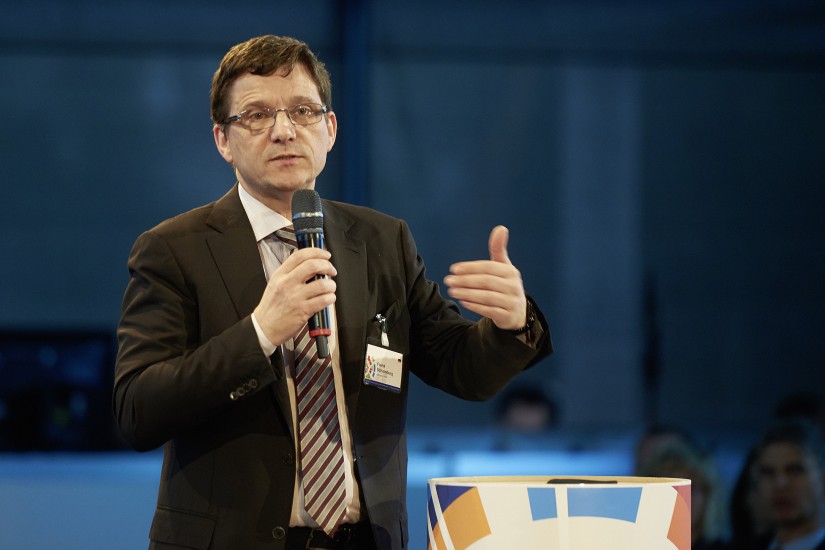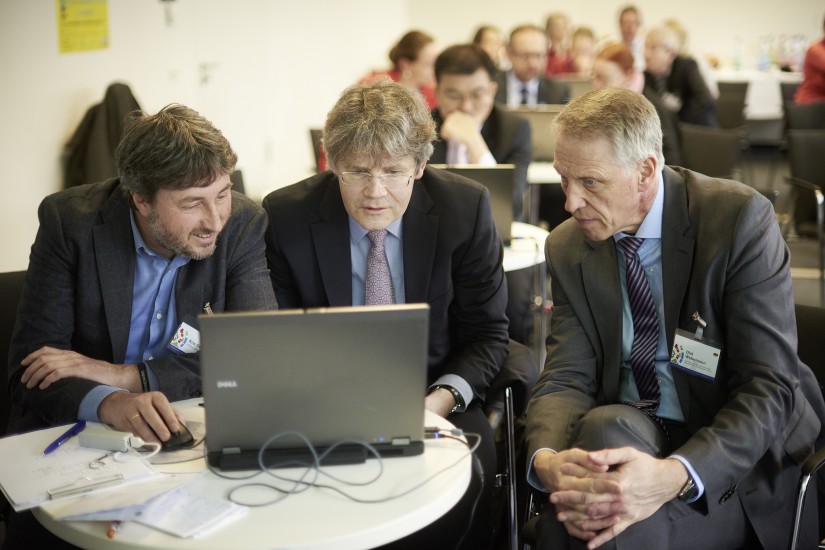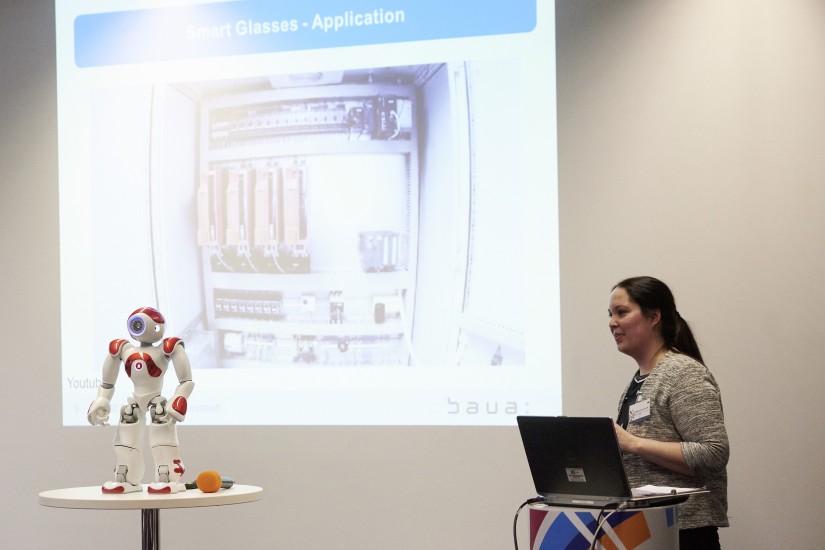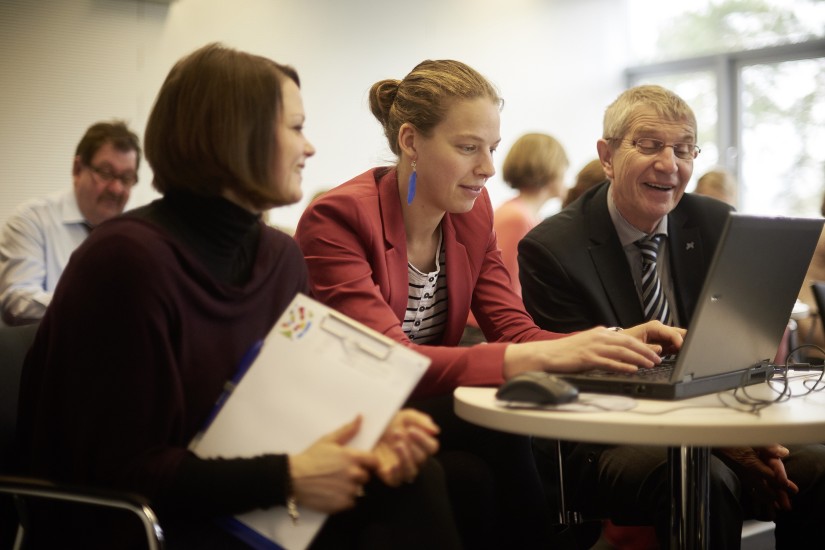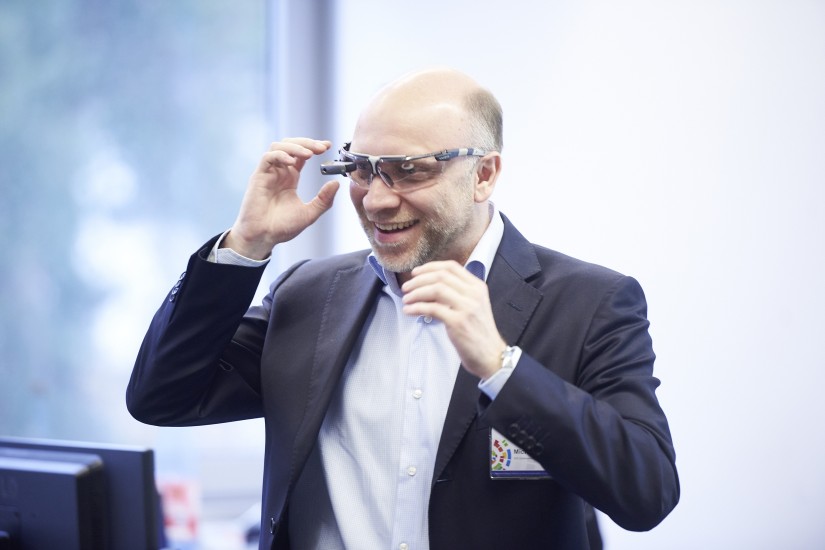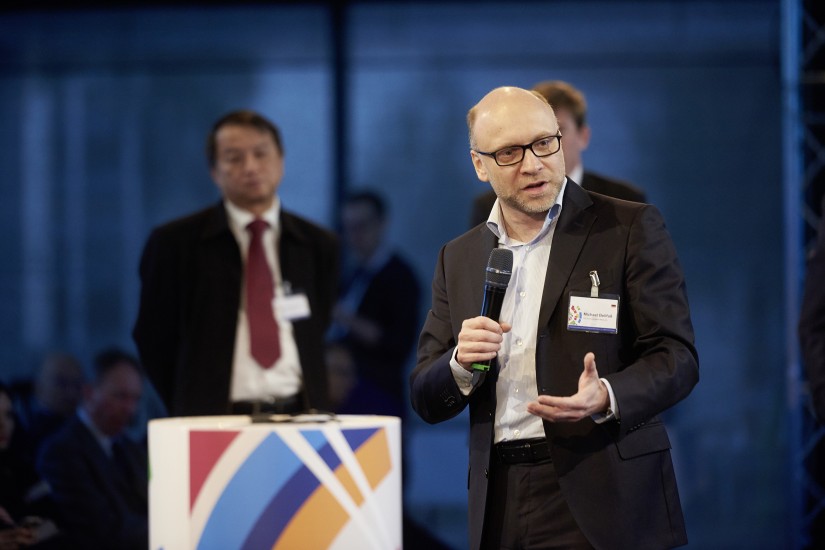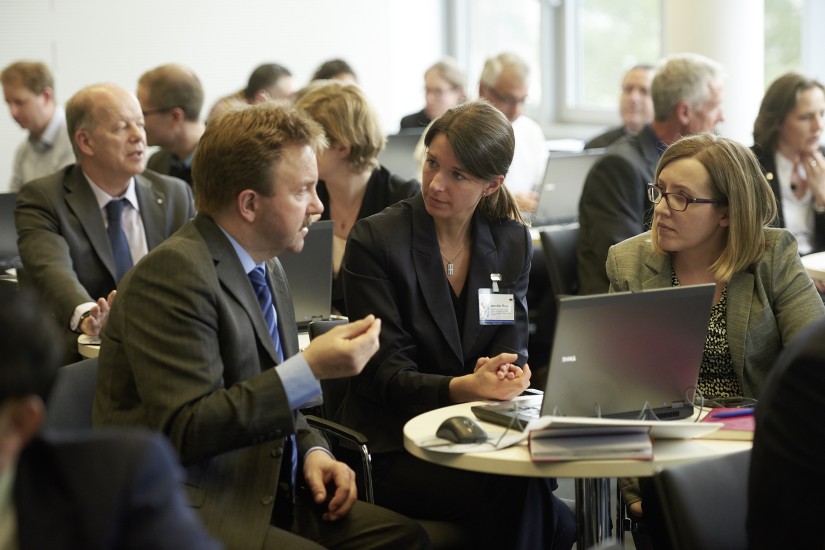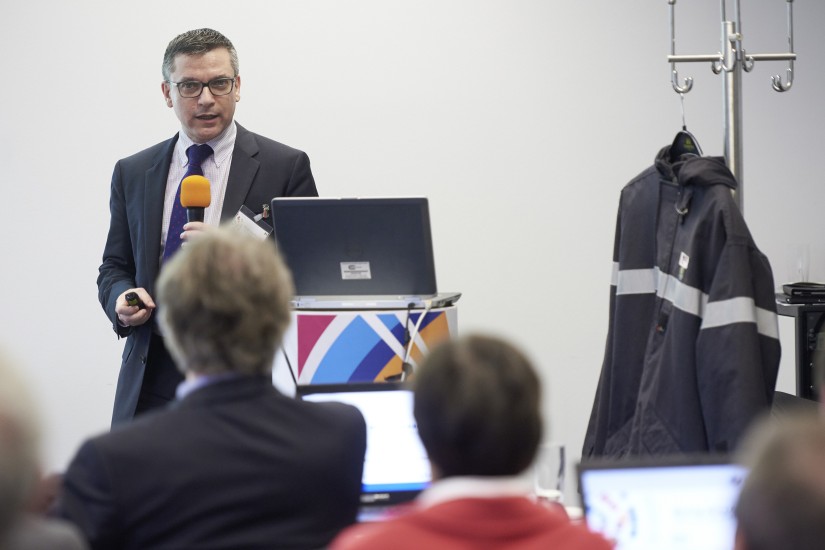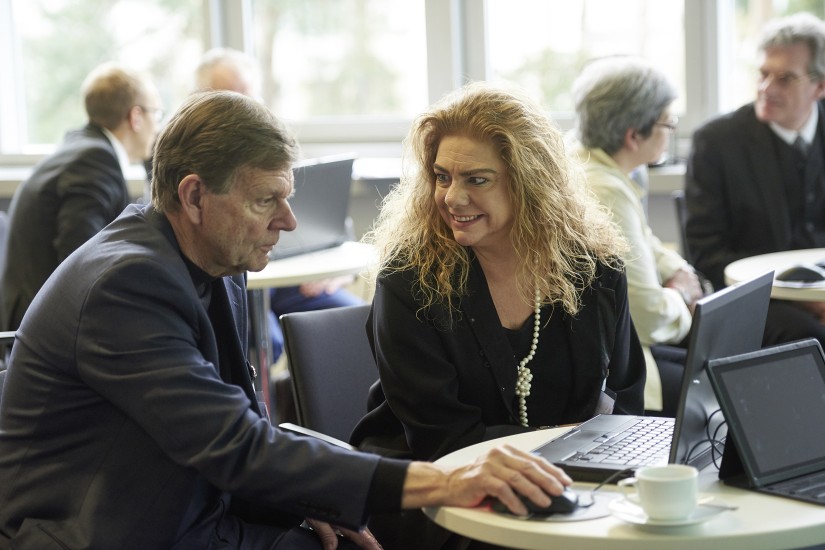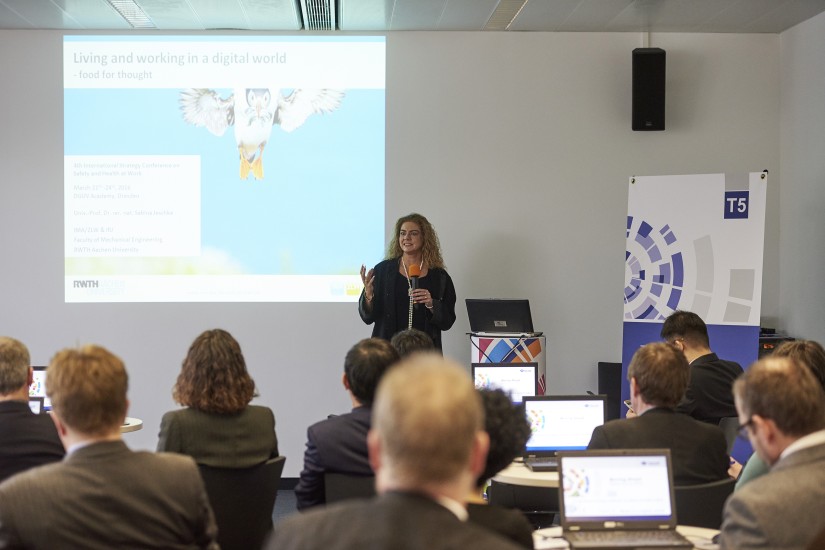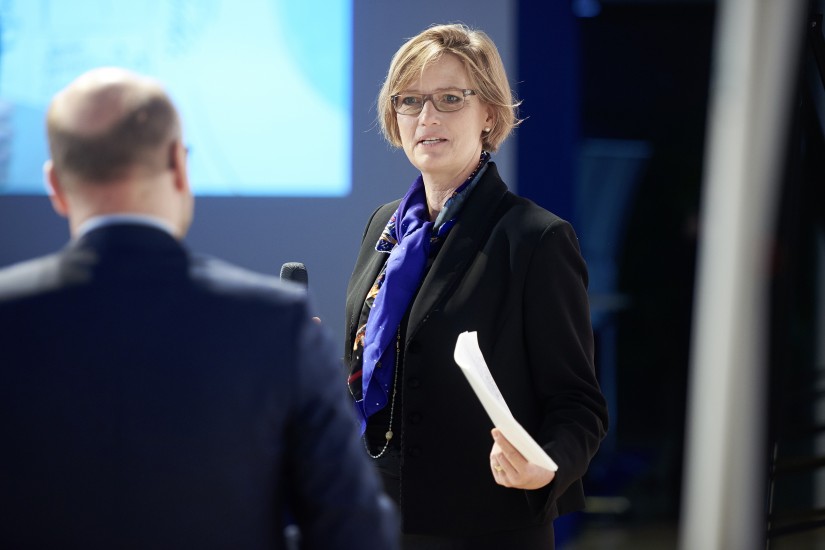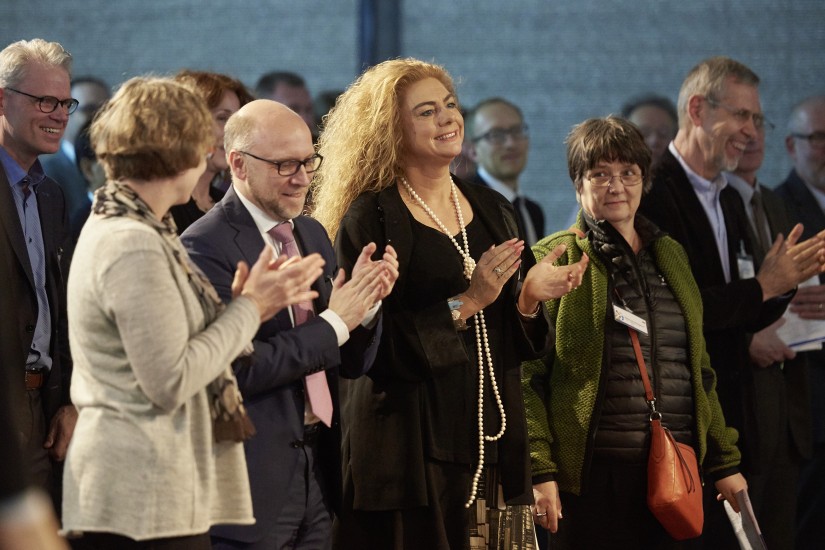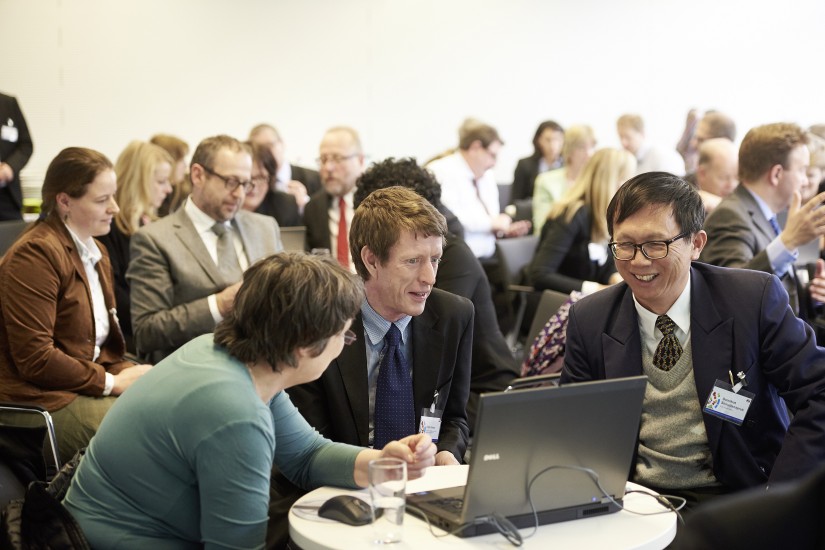T5 - Work in a digital world
“There is no start and no finish to digitalization – it’s a transition that is already in progress”
In topic 5, around 50 conference delegates discussed how digitalization will change the way in which we will work and live in the future.
“Machines no longer just process predefined algorithms, but are actually able to learn with a trial-and-error approach and achieve results that are well beyond what humans can do” predicted Sabina Jeschke, professor at RWTH Aachen University. With this in mind, the participants discussed in small groups in what ways work will be changed by digitalization. The nextmoderator® tool allowed everybody to directly see the contributions of others, rate them and comment on them. Changes in the way, time and places we work were considered to constitute the greatest change.
As for the conditions that must be met to ensure that the digital world of work is humane, a high and safe standard of data protection is considered to be crucial. Aïda Ponce from the European Trade Union Institute emphasized that new forms of flexible work require transparency and an adapted regulatory framework with clearly assigned responsibilities: “We must not end up in a regulatory no-man’s land.”
Topic facilitator Michael Beilfuss provided some first-hand insight into the process of digitalization within his own company, the IDG Media Group. In his view, leaders must be courageous and try new things instead of defending successful models for too long without adapting them. The brainstorming results confirmed that leadership is considered to be a key factor in the digitalization process.
In the last session, digital tools were presented: a smart firefighter jacket equipped with sensors can communicate with external persons who can provide assistance in an emergency; smart glasses give instructions or display the relevant OSH rules to the wearer for certain tasks; Nao, a humanoid robot, is used for research into ethical, social and legal questions of human-robot collaboration. The key result of the brainstorming was that participants wish for smart products which provide relevant information for a given problem on-site and in real time.
The OSH community is already aware of the transition to the digital age and well prepared to tackle the challenges that lie ahead. This was reflected not only by the numerous contributions and ideas that were collected in the digital brainstorming, but also at several points in the plenary sessions: “Digitalization is a megatrend in OSH”.
